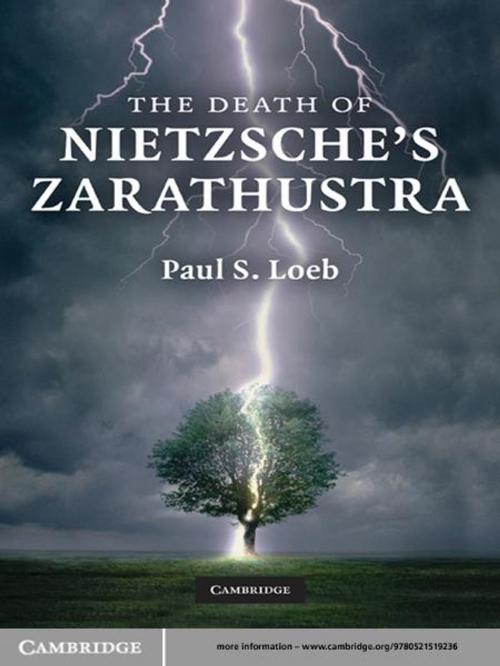The Death of Nietzsche's Zarathustra
Nonfiction, Religion & Spirituality, Philosophy, Modern, Fiction & Literature, Literary Theory & Criticism| Author: | Paul S. Loeb | ISBN: | 9780511848285 |
| Publisher: | Cambridge University Press | Publication: | April 15, 2010 |
| Imprint: | Cambridge University Press | Language: | English |
| Author: | Paul S. Loeb |
| ISBN: | 9780511848285 |
| Publisher: | Cambridge University Press |
| Publication: | April 15, 2010 |
| Imprint: | Cambridge University Press |
| Language: | English |
In this study of Nietzsche's Thus Spoke Zarathustra, Paul S. Loeb proposes a fresh account of the relation between the book's literary and philosophical aspects and argues that the book's narrative is designed to embody and exhibit the truth of eternal recurrence. Loeb shows how Nietzsche constructed a unified and complete plot in which the protagonist dies, experiences a deathbed revelation of his endlessly repeating life, and then returns to his identical life so as to recollect this revelation and gain a power over time that advances him beyond the human. Through close textual analysis and careful attention to Nietzsche's use of Platonic, biblical, and Wagnerian themes, Loeb explains how this novel design is the key to solving the many riddles of Thus Spoke Zarathustra - including its controversial fourth part, its obscure concept of the Übermensch, and its relation to Nietzsche's Genealogy of Morals.
In this study of Nietzsche's Thus Spoke Zarathustra, Paul S. Loeb proposes a fresh account of the relation between the book's literary and philosophical aspects and argues that the book's narrative is designed to embody and exhibit the truth of eternal recurrence. Loeb shows how Nietzsche constructed a unified and complete plot in which the protagonist dies, experiences a deathbed revelation of his endlessly repeating life, and then returns to his identical life so as to recollect this revelation and gain a power over time that advances him beyond the human. Through close textual analysis and careful attention to Nietzsche's use of Platonic, biblical, and Wagnerian themes, Loeb explains how this novel design is the key to solving the many riddles of Thus Spoke Zarathustra - including its controversial fourth part, its obscure concept of the Übermensch, and its relation to Nietzsche's Genealogy of Morals.















